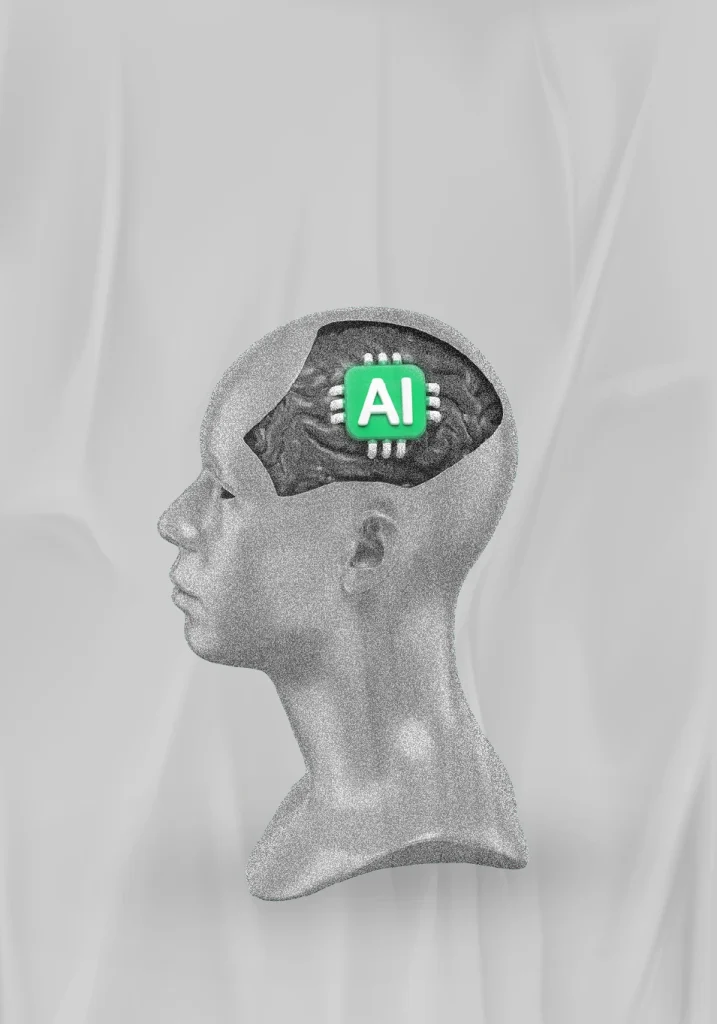In the ever-evolving world of marketing, change is the only constant and right now at the forefront of this revolution is Artificial Intelligence (AI). As brands navigate diverse possibilities in the digital landscape, the use of AI promises transformative marketing, personalization, efficiency and unparalleled insights. It’s an emerging tool that adds convenience to every aspect of life. AI is therefore here to stay, whether it is in the form of voice-activated personal assistants like Alexa, Siri, and Google voice search, or in other applications like facial recognition, targeted advertising, product and service recommendations, and more.
Let’s dive into latest insights and understand the ways AI will have a profound impact on the marketing landscape.
- Data-driven Decision Making – AI’s ability to process massive data in real-time is a boon for marketers. With machine learning algorithms, businesses can gain actionable insights from diverse data. According to a recent survey by Forbes, 78% of marketers believe that AI is essential for the future of marketing, highlighting the shift towards data-driven decision-making.
Chatbots –
The increase in the number of AI-powered chatbots has revolutionized customer interactions. These virtual assistants not only provide instant responses but also learn from each interaction, becoming more adept over time. Brands leveraging chatbots into customer service not only enhance customer satisfaction but also get valuable insights to refine their marketing strategies.Hyper-personalization –
In the age of information overload, consumers crave personalized experiences. AI enables marketers to tailor content, recommendations, and advertisements based on individual preferences, behaviour, and demographics. A study by Accenture revealed that 91% of consumers are more likely to shop with brands that provide relevant offers and recommendations. AI’s prowess in understanding consumer behaviour positions marketers to deliver hyper-personalized content that resonates with their target audience.Predictive Analytics –
AI’s predictive analytics capabilities empower marketers to foresee trends, anticipate customer needs, and optimize campaigns. By analyzing historical data and identifying patterns, AI models can predict future outcomes with remarkable accuracy. This foresight enables marketers to allocate resources efficiently and stay one step ahead in the fast-paced digital landscape. According to a study by Gartner, 43% of organizations have already adopted AI for predictive analytics, with this number expected to rise.Voice Search Optimization –
As voice-activated devices become ubiquitous, optimizing content for voice search has become imperative. AI-driven natural language processing (NLP) enables search engines to understand and respond to conversational queries. ComScore predicts that by 2022, half of all online searches will be conducted through voice. Marketers who adapt their strategies to accommodate this shift will be better positioned to capture the attention of the growing voice-search user base.Programmatic Advertising –
The efficiency of programmatic advertising, powered by AI algorithms, is reshaping the digital advertising landscape. Real-time bidding, audience targeting, and personalized ad placements are streamlined through AI, resulting in more cost-effective and relevant advertising campaigns. According to eMarketer, programmatic advertising accounted for over 85% of total digital display ad spending in the UK in 2022, a clear indication of its increasing dominance.
In conclusion, the integration of Artificial Intelligence into marketing strategies is not a mere trend but a transformative force reshaping the industry. The ability of AI to process and analyze vast amounts of data, deliver hyper-personalized experiences, and enable predictive decision-making positions it as an invaluable tool for marketers navigating the complexities of the digital era. As businesses embrace the power of AI, they are not only optimizing their marketing efforts but also future-proofing their strategies in an ever-evolving landscape. The journey has just begun, and those who harness the potential of AI will undoubtedly lead the way in the marketing landscape of tomorrow.



